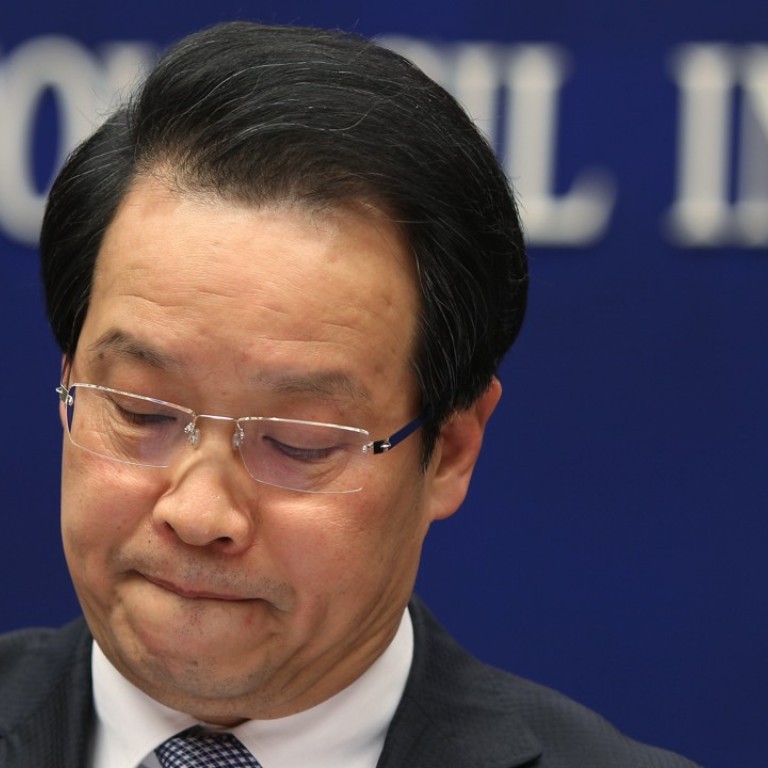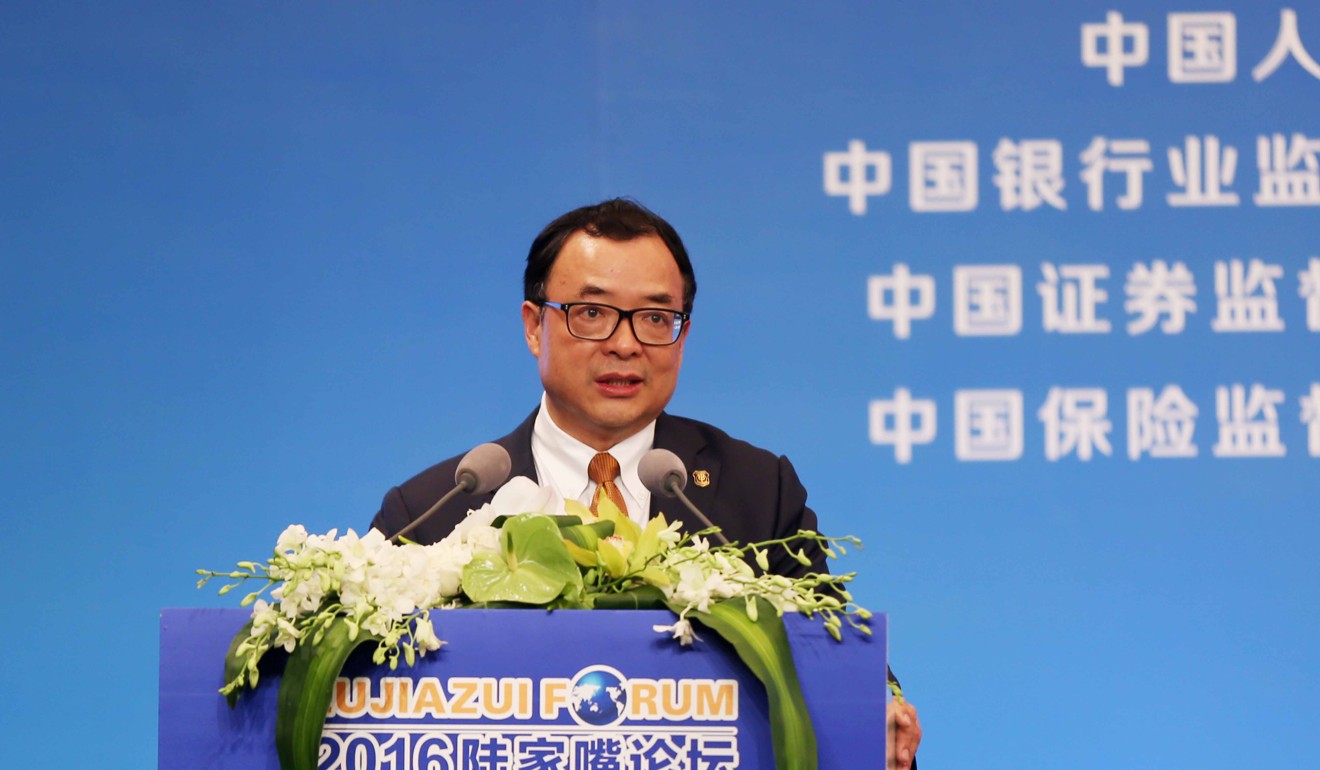
Why China hasn’t put a new head at the heart of its financial market mess
The China Insurance Regulatory Commission has remained headless for more than two months since Beijing’s corruption crackdown ensnared its former chairman
China’s insurance regulator has been without a chief for over two months while the industry the agency supervises continues to shiver amid Beijing’s latest clean-out of corruption.
Beijing hasn’t announced a replacement for Xiang Junbo, the former chairman of the China Insurance Regulatory Commission, one of China’s top three financial regulators, since he was placed under a corruption investigation in early April. While the lack of a chairman doesn’t stop the agency from performing its day-to-day functions, the vacancy reflects the Chinese top leadership’s mistrust of a sector that is both a key source of financial insecurity and the focus of corruption allegations, according to analysts.
The insurance industry’s latest shake-up occurred with the reported detention of Wu Xiaohui, the chairman of Anbang Group, who has close ties to some of China’s most powerful political families. Anbang said early on Wednesday that Wu had stepped aside “for personal reasons” and had left his empire to his subordinates. The Chinese magazine Caijing earlier reported that Wu had been taken away for investigation. While there is no direct link between Xiang and Wu, Anbang was allowed to sell high-risk and short-term insurance policies aggressively under Xiang’s watch.
“The delay in appointing a replacement [for Xiang] suggests the leadership has lost confidence in the institution as a whole, not just in a particular individual,” said Scott Kennedy, deputy director of the Freeman chair in China Studies at the Centre for Strategic and International Studies in Washington.
“The leadership is not only trying to rein in corruption, but decide on how to potentially restructure China’s financial regulators and it apparently is deadlocked on the various options,” Kennedy said.
China’s three watchdogs for banking, the stock market and the insurance industry are repeatedly targeted in China’s anti-corruption campaign – a hallmark political movement under President Xi Jinping – especially in the wake of the summer 2015 stock market rout that hurt Beijing’s credibility in managing its economy.

Since the allegations against Xiang were made public, his duties has been mainly performed by Chen Wenhui, one of the three deputy chairmen at the insurance regulator. It was Chen who gave a speech to China’s top leaders, including President Xi, at a late April meeting in which Xi urged the country’s central bank, the banking regulator, the stock market regulator and the insurance watchdog to leave no stone unturned in managing financial risk.
China’s financial sector has hugely expanded with many financial firms involved in extensive overseas deals. Meanwhile, outsiders remain in the dark regarding personnel appointments and the sacking of regulators. The guessing game may get even more difficult in the run-up to the Communist Party’s 19th congress due to be held this autumn.
“It’s very difficult to find a good person who is very technically savvy on regulating the financial markets and politically savvy as well. Finding some people who fit that mode is going to be difficult and there are not a lot of people that fit the description,” said Christopher Balding, associate professor at Peking University’s HSBC Business School in Shenzhen.
Fraser Howie, director of Newedge Financial in Singapore, said the absence of a new chairman at a key financial regulator showed that the priority for Beijing now was not about “building trustworthy markets with transparent structures”.
A two-month gap between personnel appointments, however, has precedent in China. In September 2013, Jiang Jiemin, the former director of the State-owned Assets Supervision and Administration Commission, was placed under investigation for corruption. His position was officially filled by Zhang Yi, one of his deputies, three months later.
Meanwhile, the insurance regulator chairmanship is a political hot seat, given Beijing’s pursuit of problematic deals in the insurance sector.
“As to the chairman’s job, who would want it now?” said Howie.

